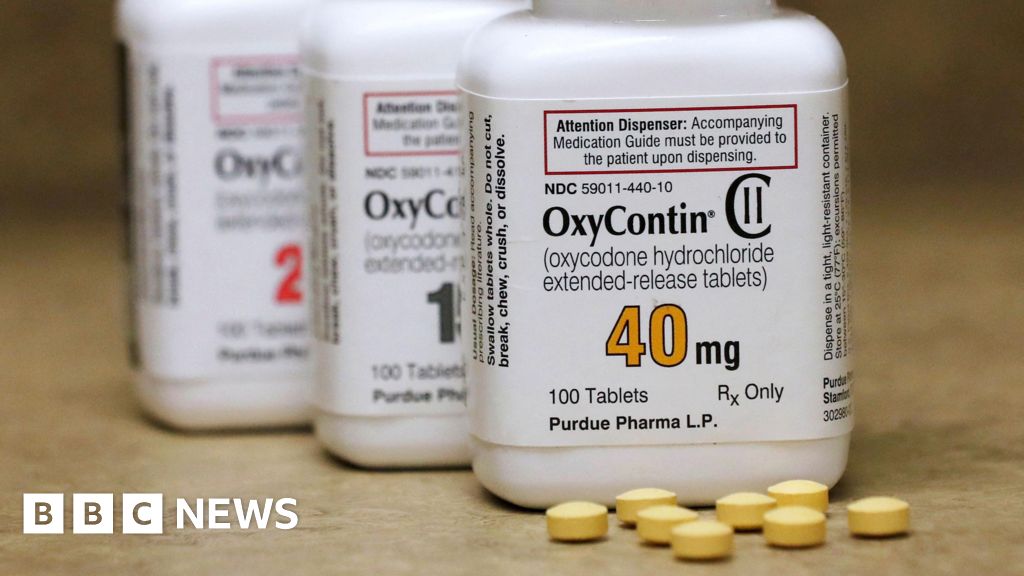ARTICLE AD BOX
Watch: Trump mocks Haley after winning New Hampshire
By Anthony Zurcher
North America correspondent in New Hampshire
Donald Trump has won the New Hampshire primary, defeating his last remaining rival for the 2024 Republican presidential nomination, former South Carolina Governor Nikki Haley.
His victory means the race for the nomination is all but over, even if Ms Haley is not yet ready to end her campaign - a fact that clearly irked the former president on what was otherwise an evening of celebration.
"She's doing... a speech like she won," he said of his rival, who pledged to stay in the race earlier in the evening. "She didn't win. She lost."
Although Mr Trump's victory in New Hampshire did not match the 20-point margin that was predicted by recent polls, it should be more than enough to maintain the current direction of the race.
He won by a landslide in the first contest in Iowa. And the upcoming states on the Republican primary calendar tilt more heavily in his favour than New Hampshire, suggesting his march towards the nomination will soon become a stampede.
With each passing vote, a truth becomes increasingly clear. As polls for almost the entire year have shown, the Republican Party is still Donald Trump's party.
His base's loyalty is unwavering, through dramas both legal and political. His brand of conservative populism is in step with his party's voters, as is his focus on issues like immigration, crime and energy.
That may not deter Ms Haley in the short term, but the reality is that New Hampshire was her best shot to disrupt Mr Trump's steady march toward the Republican presidential nomination.
She spent tens of millions of dollars here and had the endorsement of the state's popular Republican governor, but New Hampshire's independent voters and large proportion of college graduates were not enough to deliver victory.
Ms Haley is now looking ahead to the primary in her home state of South Carolina next month. To get there, however, she will need the campaign contributions to keep flowing. Even with a better-than-expected finish, that is no guarantee, given that her long odds of winning the nomination just got even longer.
If she does stay afloat, she may not get a particularly warm homecoming. Mr Trump has the endorsement of most of South Carolina's Republican establishment, and he has a commanding lead in the polls. It was a point the former president was quick to point out in his Tuesday night speech.
"We'll head out to South Carolina where I think we're gonna win easily," he said in front of a cheering crowd in the city of Nashua.
Watch: Haley congratulates Trump, but says race is not over
A drubbing in her old stomping ground would be an ignominious way to end what has been a relatively successful campaign for Ms Haley. It is a fate she may ultimately choose to avoid, but she has a month to try to turn that around.
Even if Ms Haley does ultimately throw in the towel in the days ahead, the New Hampshire results should cause some concern among Mr Trump's team.
A Fox News voter analysis found 32% of those who participated in the Republican primary would not vote for him in November's general election if he wins the nomination. Only 49% said they would consider themselves a Maga supporter - a reference to the former president's Make America Great Again campaign slogan.
A CBS exit survey also paints a picture Mr Trump's support base, but it also shows its limitations. Among self-identified "very conservative voters", the former president won 88%. He carried 66% of primary voters with no college degree and evangelical Christian voters by a similar margin.
He won only 23% of moderates and 39% of college graduates - groups he will have to appeal to if he wants to beat President Joe Biden, the likely Democratic candidate, in November's general election.
And after Tuesday night's results, that 2020 presidential rematch seems much more likely, even if that is a prospect polls suggest many Americans do not welcome.

 1 year ago
18
1 year ago
18








 English (US) ·
English (US) ·